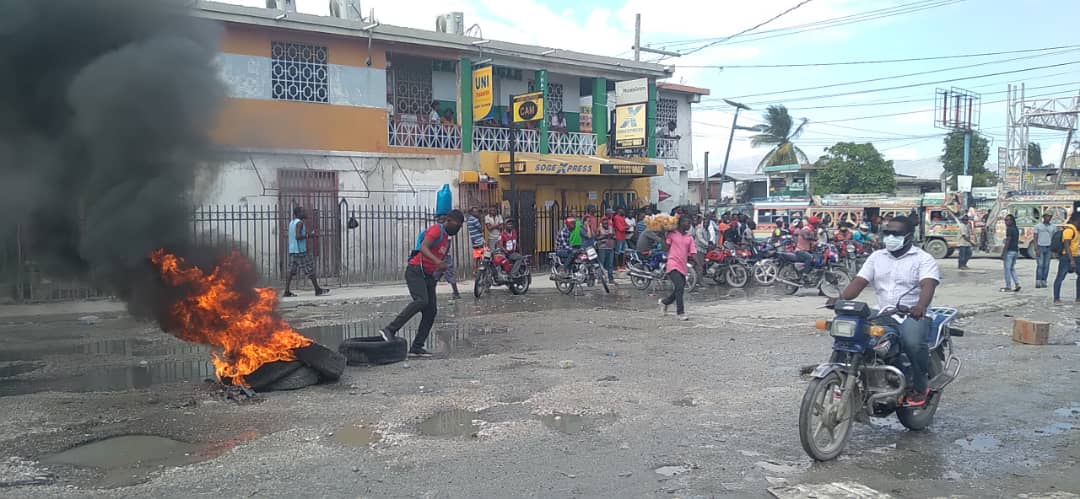The new, highly transmissible omicron variant of the coronavirus has been detected in Massachusetts for the first time, the state Department of Public Health said Saturday.
The person is a woman in her 20s from Middlesex County who had traveled out of Massachusetts. She is fully vaccinated, had a mild case of COVID-19 and didn’t need to be hospitalized, officials said.
The variant had already been detected in several states across the country this week.
With the new omicron variant of COVID-19 found in California, health officials are urging safety as new data is collected and analyzed.
Evidence has shown omicron to be more transmissible than other COVID variants, and it’s been labeled a “variant of concern” by the U.S. Centers for Disease Control and Prevention and the World Health Organization, but the Department of Public Health noted Saturday that “scientists are still working to determine how it may compare with the predominant Delta variant in terms of transmissibility and disease severity.”
Omicron’s Spread in the US, Massachusetts
The first U.S. case of the omicron variant was detected on Wednesday in a vaccinated person who had flown from South Africa to California, top U.S. infectious disease expert Dr. Anthony Fauci announced. The variant was discovered a little over a week ago after being identified in South Africa, though earlier cases have been found in Europe.
Massachusetts’ first case of the variant was identified by genetic sequencing done at New England Biolabs, state health officials said.
The woman was not identified, and officials didn’t say where she had traveled out of state.
More than 10 states in the U.S. have reported omicron cases, including at least eight in New York State. Connecticut became the second New England state to report a case, with Gov. Ned Lamont announcing Saturday night that health officials had detected the state’s first case in a fully vaccinated man in his 60s whose family member had traveled to NYC.
What Do We Know About the Omicron Variant?
This week, NBC10 Boston asked three top Boston doctors to answer some key open questions about the omicron variant as part of our weekly “COVID Q&A” series, including how worried we should be about the omicron variant and if its symptoms any worse than previous strains.
Three top Boston doctors explain what the new omicron variant is, whether it’s already in the U.S., what the symptoms are and if vaccines protect against it on the weekly “COVID Q&A” series.
“I think we should be watchful, but not nervous,” said Dr. Daniel Kuritzkes, Brigham and Women’s Hospital’s chief of infectious disease. “President Biden said ‘This is cause for concern, but not for panic,’ which I agree with. There’s every reason to think that getting vaccinated and taking simple public health measures like continuing to wear a mask when in crowded situations indoors are going to be highly protective.”
All three doctors said they don’t expect symptoms from the omicron variant to differ much from the other strains, but they also said it’s too soon to know for sure.
“I’m not sure there are any major changes in sort of the array of symptoms associated with these viruses,” said Dr. David Hamer, an infectious disease specialist at Boston Medical Center. “One of the changes is if you become vaccinated and get a breakthrough case, you’re much more likely to have milder symptoms.”
Many experts, including Fauci, have said that existing COVID vaccines are expected to help prevent severe disease in people infected by omicron to at least some degree.
The mild nature of the California case is “testimony to the importance of the vaccinations,” California Health Secretary Dr. Mark Ghaly said Wednesday.
But among the evidence that the omicron variant may be more infectious than earlier mutations is recent research tracking reinfections in South Africa. Local scientists this week reported a jump in reinfections with the arrival of omicron that they hadn’t seen when two previous variants, including the extra-contagious delta variant, moved through the country.
The findings, posted online Thursday, are preliminary and haven’t yet undergone scientific review. Nor did the researchers say what portion of the reinfections were confirmed as omicron cases — or whether they caused serious illness.
But the timing of the reinfection spike suggests that omicron “demonstrates substantial population-level evidence for evasion of immunity from prior infection,” they wrote.
With the omicron variant of COVID spreading across the U.S., Gov. Charlie Baker and Lt. Gov. Karyn Polito got their booster shots, hoping to inspire others to follow suit.
The Associated Press contributed to this report.












